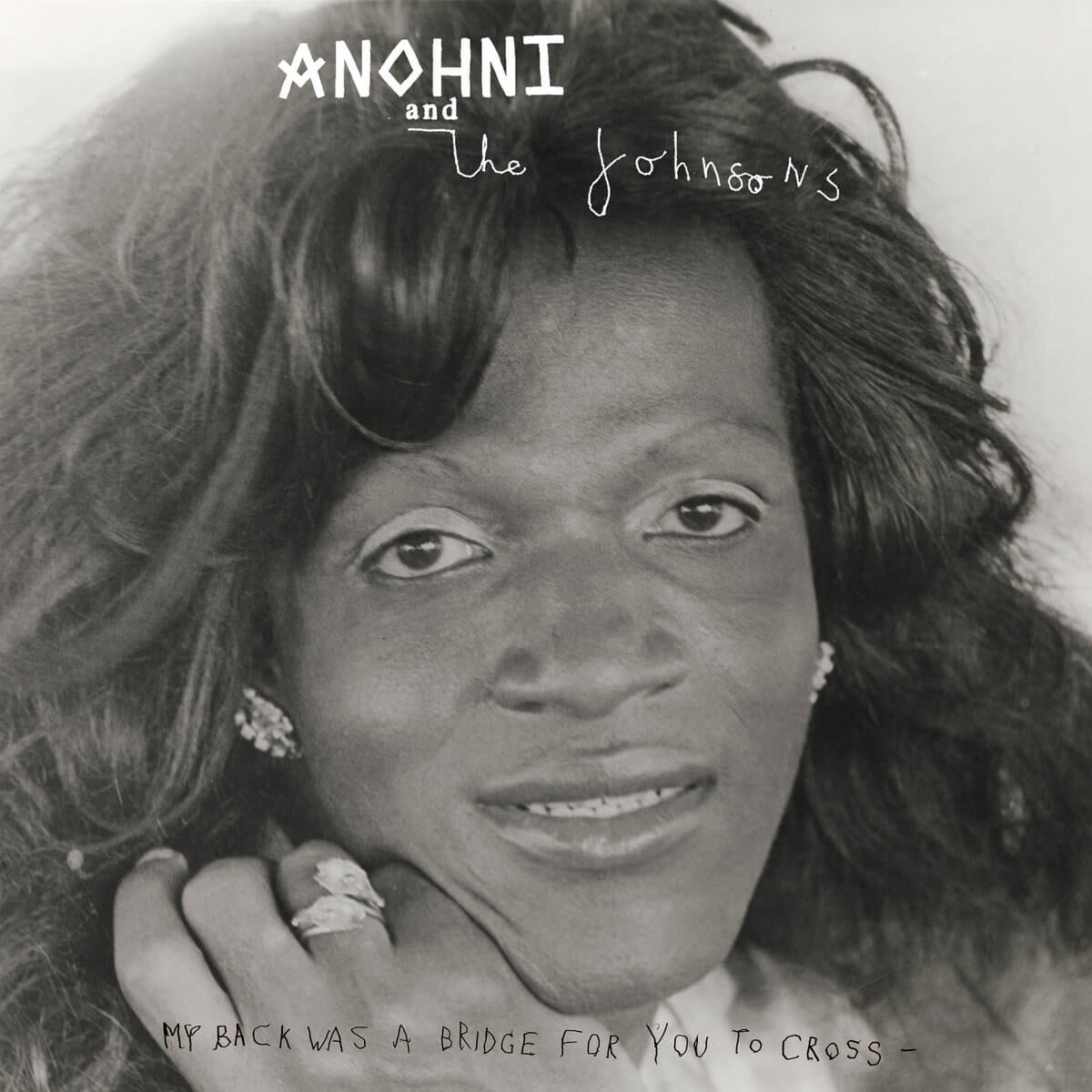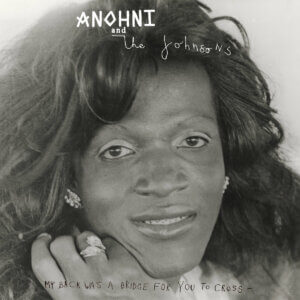
8.5
My Back Was A Bridge For You To Cross
ANOHNI and the Johnsons
Unless you’re an eternal optimist — and bless your soul, if that’s the case — few song titles speak to the unending madness that surrounds us better than ANOHNI and the Johnsons’ “Why Am I Alive Now?”
We are revisiting our favourite records of 2023
Found late on the group’s new My Back Was A Bridge For You To Cross, the track is actually quite soothing, at least sonically; the Johnsons’ lay things out as a six-minute soul jam of silken guitar chords, astral plane-hopping vibraphone, and gentle conga tapping. Nevertheless, ANOHNI’s singular vibrato flips the feel with freeform contemplations of looming ecological disasters: “I don’t want to be witness/Seeing all of this duress/Aching of our world”.
While these concerns also factored into HOPELESSNESS, ANOHNI’s 2016 solo album, her return to the Johnsons draws inspiration from a more vintage piece of protest music: Marvin Gaye’s 1971 classic, What’s Going On. My Back Was A Bridge For You To Cross similarly takes on matters like civil rights and the environment, while presenting them alongside the smoothest soundscapes of ANOHNI’s career thus far.
Though My Back Was A Bridge For You To Cross marks the first formal Johnsons full-length in 13 years, the lineup is looking pretty different than that which supported ANOHNI on 2010’s Swanlights — in fact, only Rob Moose returns to arrange strings; his gliding orchestration runs subtle and profound. The key addition is Jimmy Hogarth, a guitarist/producer whose CV incudes collaborations with Tina Turner and Amy Winehouse, among others. The album was co-written between ANOHNI and Hogarth, with the latter’s light-touch a strong foil to the bandleader’s robust vocals.
Throwback soul vibes permeate opener “It Must Change,” a masterclass in low-key guitar slinkiness, and “Can’t,” where ANOHNI unleashes longing, gospel-like ad-libs (the album is said to comprise many first-take vocals). “Sliver of Ice,” a song of gratitude sung from the perspective of a dying friend describing the simple beauty of holding an ice cube in their mouth, thrives through its minimalist arrangement of tremolo guitar and undulated vocals. On the flipside, the positively electrifying “Go Ahead” finds Hogarth’s echo-blown guitar squall channeling bits of Hendrix’s “Star-Spangled Banner” and Sonny Sharrock’s esoteric phrasing, while ANOHNI’s voice rises to the front of the mix with scorched-earth fury (“Go ahead, hate yourself / I can’t stop you”).
Elsewhere, album centrepiece “Scapegoat” is a harrowing look at a cruel, yet almost casual kind of prejudice (“You’re so kill-able…It’s not personal/It’s just the way you were born.”); ANOHNI’s delivery on the piece is consistently hushed but heavy (“This one’s a freebie for our guns” is a particularly haunting expression of hatred). While full of jarring lyrical moments, the song is also the most traditionally-structured Johnsons piece on the new album, its four-chord descension similar to baroque-period ANOHNI classics like “The Lake” and “Hope There’s Someone”. Dial it back even further, and it also follows the principal melody to Prince’s “Purple Rain,” a comparison that perhaps dawned on guitarist Hogarth a few seconds before he roared out this song’s bend-heavy finale.
My Back Was A Bridge For You To Cross is a homecoming for ANOHNI and the Johnsons, on various fronts. The album cover also features a portrait of Marsha P. Johnson, the LGBTQ+ icon whom ANOHNI had met in the early ‘90s, just before the activist passed away under mysterious circumstances. The Johnsons’ band name is ANOHNI’s long-held tribute; their new album cover is a strong reminder of where they came from.
More than 50 years separate Marvin Gaye’s What’s Going On? and the Johnsons’ latest album, and what’s sadly true is that the themes on both releases — whether hinting at trans rights, systemic racism, or the obvious threat of climate change — remain evergreen. But even while songs like ANOHNI’s “Why Am I Alive Now?” seem bleak, they can also stand as a call to action. ANOHNI had explained in a statement that following the release of HOPELESSNESS, she realized her music has the potential to “provide a soundtrack that might fortify people in their work, in their activism, in their dreaming and decision-making.” As Marsha P. Johnson and Marvin Gaye had and impact on ANOHNI, perhaps another generation of Johnsons are waiting in the wings to make this a better world. There may yet be hope for the optimists.
Pre-order My Back Was a Bridge For You To Cross HERE
Latest Reviews
Tracks
Related Albums
Related News
Advertisement
Looking for something new to listen to?
Sign up to our all-new newsletter for top-notch reviews, news, videos and playlists.










